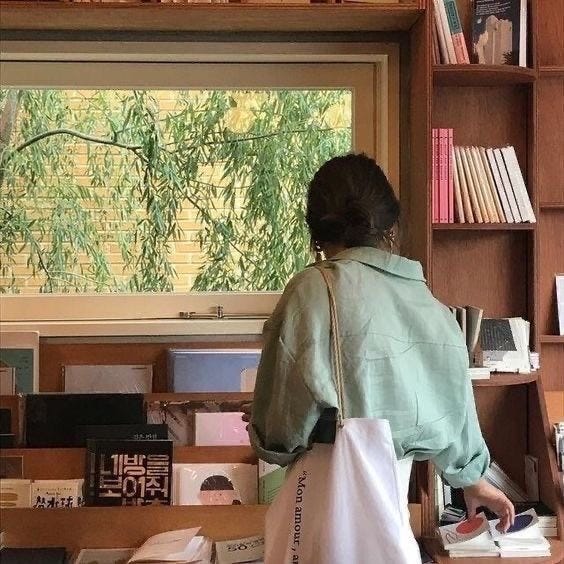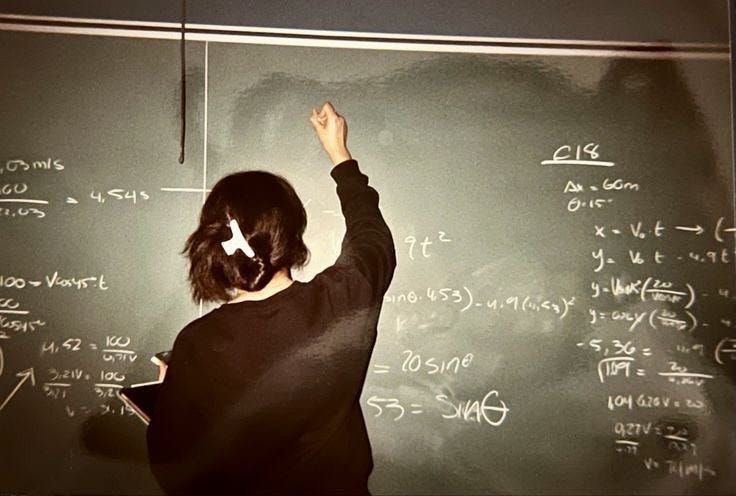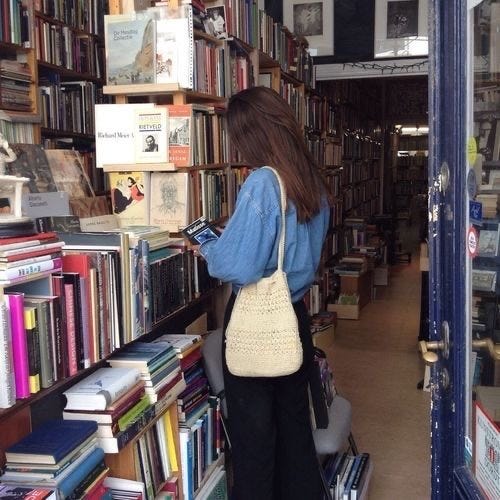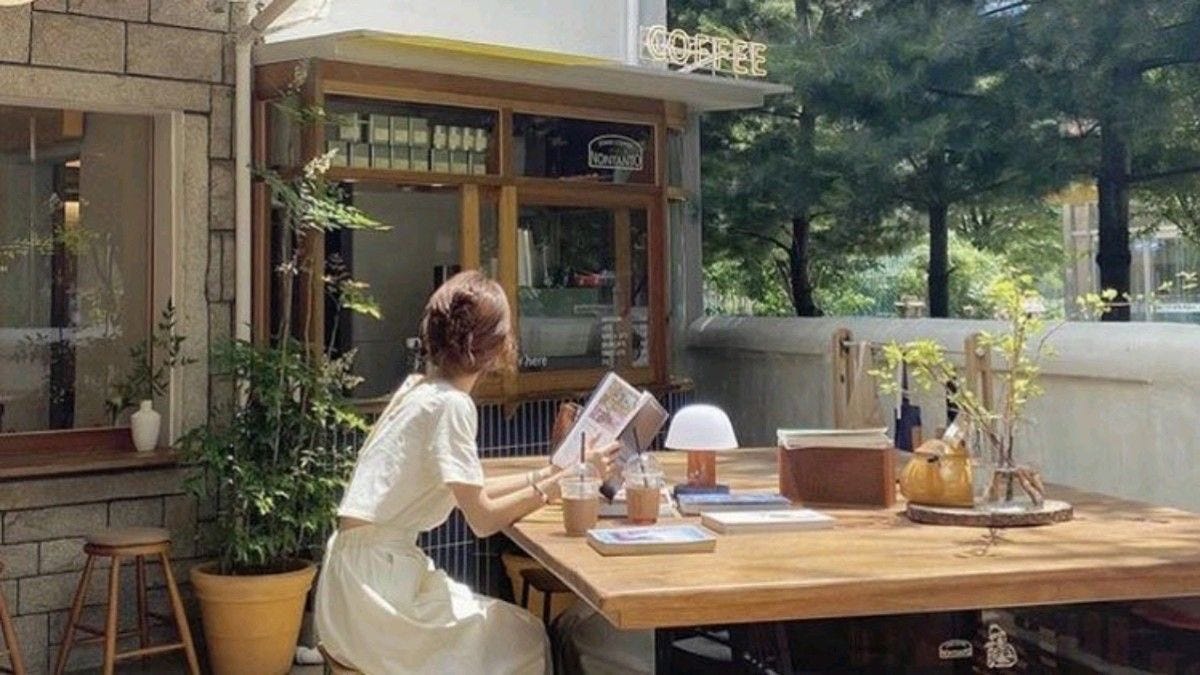there’s something about being a beginner that makes life feel expansive, like standing at the edge of an open field with no path carved out yet. it’s both terrifying and intoxicating—the knowing that you know nothing, the endless potential of what could come next. i think about this a lot, how we spend so much of our lives trying to get past the beginner stage, to arrive at a place where we are skilled, competent, sure of ourselves. but what if that certainty is a trap? what if the moment we stop being beginners, we start shrinking?
it’s easy to romanticize beginnings when you’re not in them. when you’re looking back, they seem full of charm—the thrill of the unknown, the fumbling attempts, the little victories. but when you’re actually in it, being a beginner is frustrating, humbling, sometimes humiliating. it’s sitting with the discomfort of not being good at something, of having no idea what you’re doing, of feeling like everyone else has it figured out except for you. it’s why most people avoid it altogether. they’d rather stay where they’re comfortable, where they’re competent, where they can pretend they know exactly who they are.
i think about all the people who are stuck because they’re afraid to start over. the ones who have convinced themselves they are too old, too late, too far behind to be beginners again. and then i think about the ones who refuse to let themselves become stagnant, who are always chasing that next learning curve. my neighbour learned how to swim in his sixties. my friend’s mother started learning french after retirement. i once met a woman in a bookstore who told me she had just started playing the violin at seventy-two. she said, “why not? i have time.” and i remember thinking, that’s how i want to be. i never want to stop finding new things to love, even if i’ll never master them.
being a beginner isn’t just about hobbies or skills—it’s also about the way we see the world. some people move through life with rigid certainty, convinced that they’ve figured out how things work, that their opinions are fixed, that their identity is something complete and unchangeable. others remain students of the world, constantly questioning, adjusting, learning, unlearning. i want to be like the latter. i want to live in a way that allows me to be wrong, to change my mind, to grow into different versions of myself without feeling like i’ve betrayed who i used to be.
there’s a certain kind of grief that comes with change, a mourning of the people we no longer are. but i think it’s a beautiful thing, too. to be able to look back and think, i don’t recognize that version of myself anymore, because it means we’ve evolved. it means we’ve let ourselves be reshaped by experience, by knowledge, by life itself. and isn’t that the whole point?
i think about this a lot in the context of careers, too. how people spend years building an identity around their job title, their level of expertise, the industry they belong to. they spend so much time climbing a particular ladder that they don’t realize they might be on the wrong one. and even if they do realize it, the idea of starting over—of being a beginner again—is too daunting. but the people who are truly happy in their work seem to be the ones who aren’t afraid to pivot. the ones who allow themselves to follow curiosity instead of clinging to an outdated idea of success. i know someone who went from being a lawyer to a pastry chef. another person who left a corporate job to open a tiny bookstore in their hometown. neither of them regrets it.
but this fear of starting over exists in relationships, too. how easy it is to fall into patterns, to assume we already know the people we love. but what if we let ourselves be beginners with them, over and over again? what if we approached our friendships, our families, our partners with the same curiosity we have when we meet someone for the first time? what if we stopped assuming we knew everything about them and instead allowed ourselves to be surprised?
because people change. they are always changing. and when we stop being beginners with each other, we stop seeing each other for who we are now. we cling to old versions, outdated expectations, stories that no longer fit. maybe the secret to keeping relationships alive isn’t just commitment, but the willingness to keep rediscovering, to keep learning, to keep starting over.
on top of this, there’s the way we view ourselves. how we construct an identity and cling to it so tightly that we don’t give ourselves room to grow out of it. maybe you’ve always been the funny one, the smart one, the responsible one. maybe you’ve been the one who always says yes, the one who holds everything together, the one who never falls apart. but what if that no longer fits? what if you want to be something else? what if you need to unlearn the story you’ve been telling yourself and start fresh?
it’s hard to admit that the version of yourself you’ve spent years building might not be the one you want to be anymore. it’s terrifying to step into an identity that doesn’t feel familiar yet. but that’s part of the deal. we are always becoming. we are always beginners at being whoever we are right now.
the truth is, being a beginner is exhausting. it requires patience. humility. a level of self-compassion that most of us struggle to extend to ourselves. i remember the first time i started writing publicly—how painful it was to look at my own work and see everything that was wrong with it. how easy it would have been to quit. there were so many voices in my head telling me that i wasn’t good enough, that i would never be good enough, that the people who were actually talented must have skipped this phase entirely. but they didn’t. no one does. everyone starts as a beginner. even the people who make it look effortless.
yet, we convince ourselves that if something doesn’t come naturally, it’s not meant for us. we compare our first draft to someone else’s finished product and take it as proof that we should give up. but being bad at something is part of the process. it’s unavoidable. the difference between the people who get good at something and the ones who don’t is not talent. it’s endurance. it’s the willingness to be bad at something for as long as it takes to get better.
so i hope i never get to a place where i feel like i have everything figured out. i hope i never become the kind of person who is afraid to try something just because they might look stupid doing it. i hope i never let pride keep me from learning.
i hope i always have the courage to be a beginner. and i hope you always have the courage to be a beginner.











Oh goodness! Have I had problems being a beginner! I’m retired and decided that I would learn the piano but I came to it with preconceived ideas but because I’m musical it would be easy. It isn’t and the first thing I had to do was get over the battle with my self and accept that it is alright for me to be a beginner With musical experience and at my age.
I agree with you that once you have accepted being a beginner is a new wonderful experience then it can be so much easier. It does take big girl pants though!